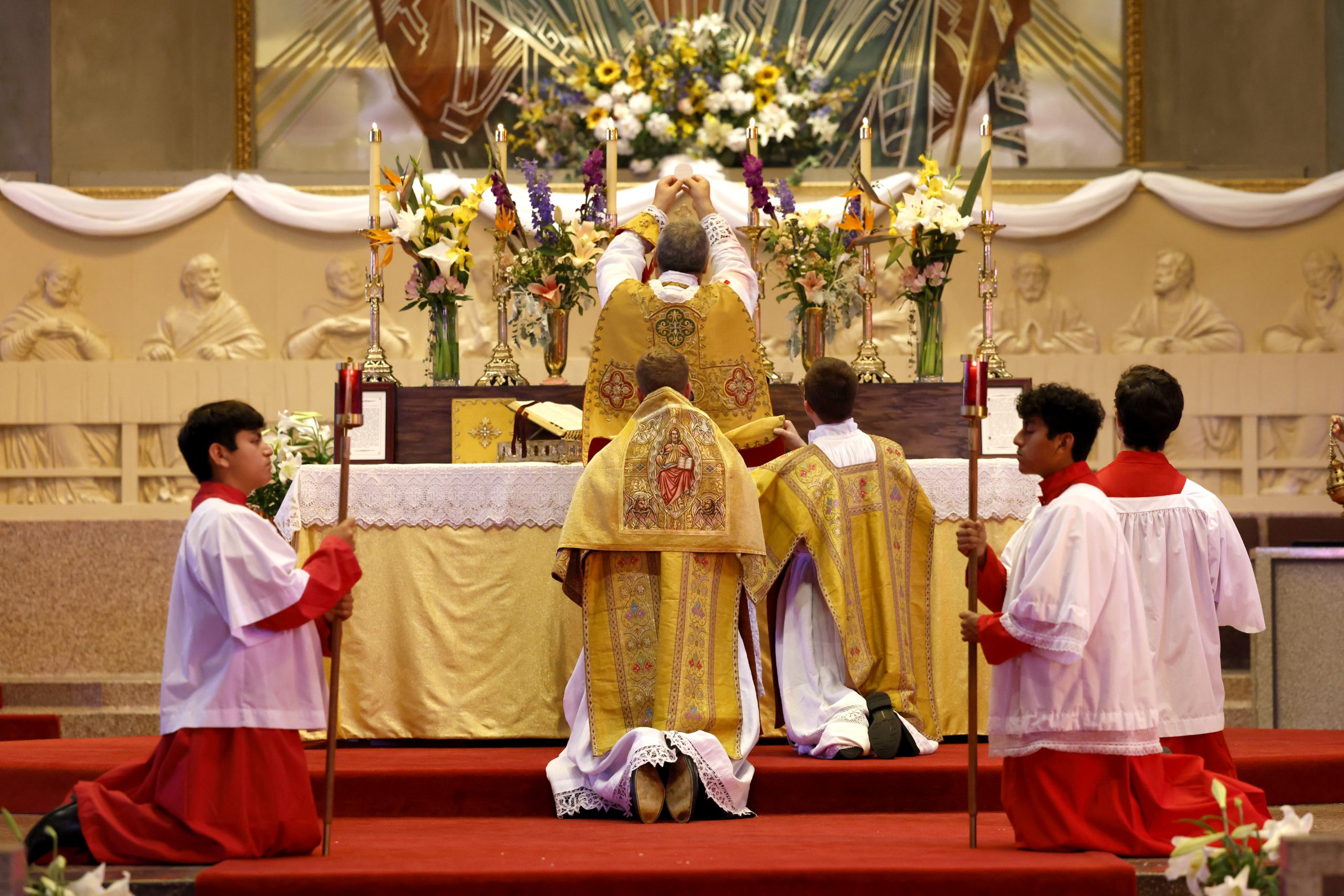
Septuagesimatide, or pre-Lent, is the name given to the three consecutive Sundays preceding Ash Wednesday. It is named after the first of these, Septuagesima Sunday, which occurs roughly seventy days before Easter (septuagesima is Latin for “seventieth”). Sexagesima (“sixtieth”) Sunday comes next, followed by Quinquagesima (“fiftieth”) Sunday on the Sunday before Ash Wednesday. In order to effect a gradual transition between the joy of Christmastide and the stringency of Lent, the season of Septuagesima takes on some of the sobriety of the latter but without its harshness. In the Roman Breviary, the penitential circuit of psalms is used (“Lauds II”), and at Mass the Gloria in excelsis is suppressed and the Gradual replaced with a Tract. Flowers on the altar are forbidden, and violet is the liturgical color of the vestments.
Each Sunday of Septuagesimatide also focuses on a different Old Testament figure as a way of leading us up to the Paschal mystery of Good Friday and Easter. Septuagesima Sunday—and this is particularly obvious in the Breviary—recalls Adam, Sexagesima Sunday Noah, and Quinquagesima Sunday Abraham. (This pattern is continued into Lent: the Second Sunday of Lent recalls Jacob, the Third Sunday Joseph, and the Fourth Sunday Moses.) The purpose of this instruction is to help the faithful see the reasons for the scandal of the Cross, the culmination of Lent. The Matin readings on Adam give us the doctrine of original sin, the passages on the Flood highlight the wickedness of mankind, and the sacrifices of Abraham and Melchisedech foreshadow the sacrifice of Christ on the Cross.
The Sundays of Septuagesima were also shaped by a series of calamities besieging the city of Rome in the sixth century. The theme of misery and desolation in the Introit of Septuagesima Sunday, for instance, comes from these troubled times. Such historical influences on the liturgical year are an excellent example of what Pope Benedict XVI meant when he referred to the Extraordinary Form as bearing “the whole weight of history within itself, and yet, at the same time, [being] much more than the product of human history.”
The second Sunday of Septuagesimatide, Sexagesima, continues to sound the exilic note of Babylon, but with a touch of joy. Both the Collect and the Epistle commemorate the apostolate of St. Paul, the feast of whose conversion on January 25 occurs around this time. Quinquagesima, on the other hand, is preoccupied with the impending Great Fast of Lent. Its Epistle from 1 Corinthians 13 on charity is the perfect preface to a season of mortification and almsgiving, for without charity, these noble acts profit us nothing (1 Cor. 13:3). Indeed, all of Septuagesimatide is an ideal primer on how to approach the purgative period of Lent in the right spirit.
Septuagesima season also marks the time when the faithful begin to fast voluntarily, in anticipation of the mandatory fast of Lent. As early as 465 A.D., St. Maximus, Bishop of Turin, was recommending a fast of devotion before Lent. In the Byzantine rite, the faithful would begin abstaining from meat on the penultimate Sunday before Lent and from dairy products on the Sunday immediately before Lent: hence the Byzantine name for Sexagesima is “Meatfare” Sunday and their name for Quinquagesima “Cheesefare” Sunday. In the Roman rite, the Sunday to begin abstaining from meat was Quinquagesima, and so it also came to be known as Dominica Carnevala, carnevala coming from the Latin for “removal” (levare) of “meat” (caro/carnis). It is from this name that our word “carnival” originates.


